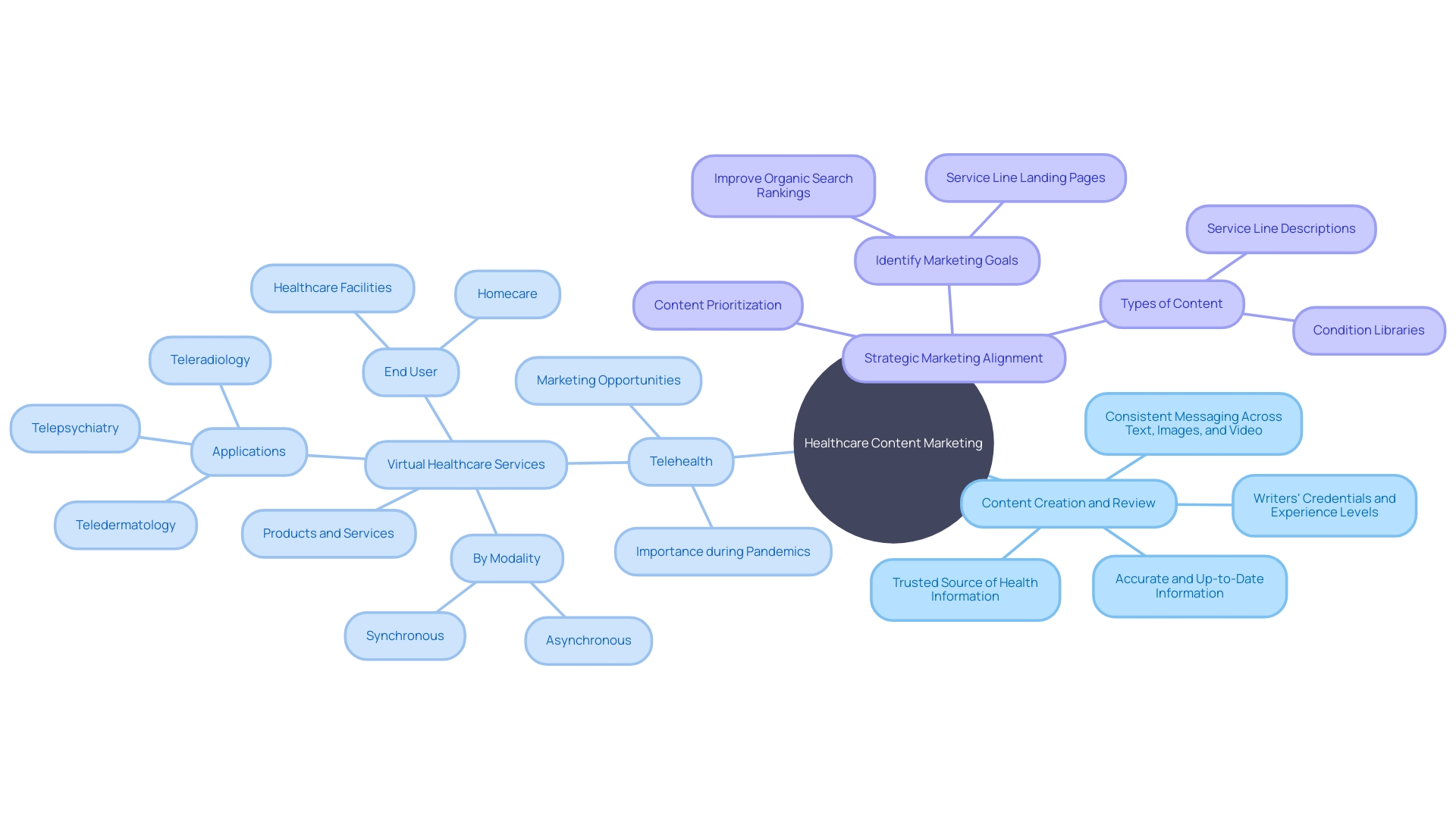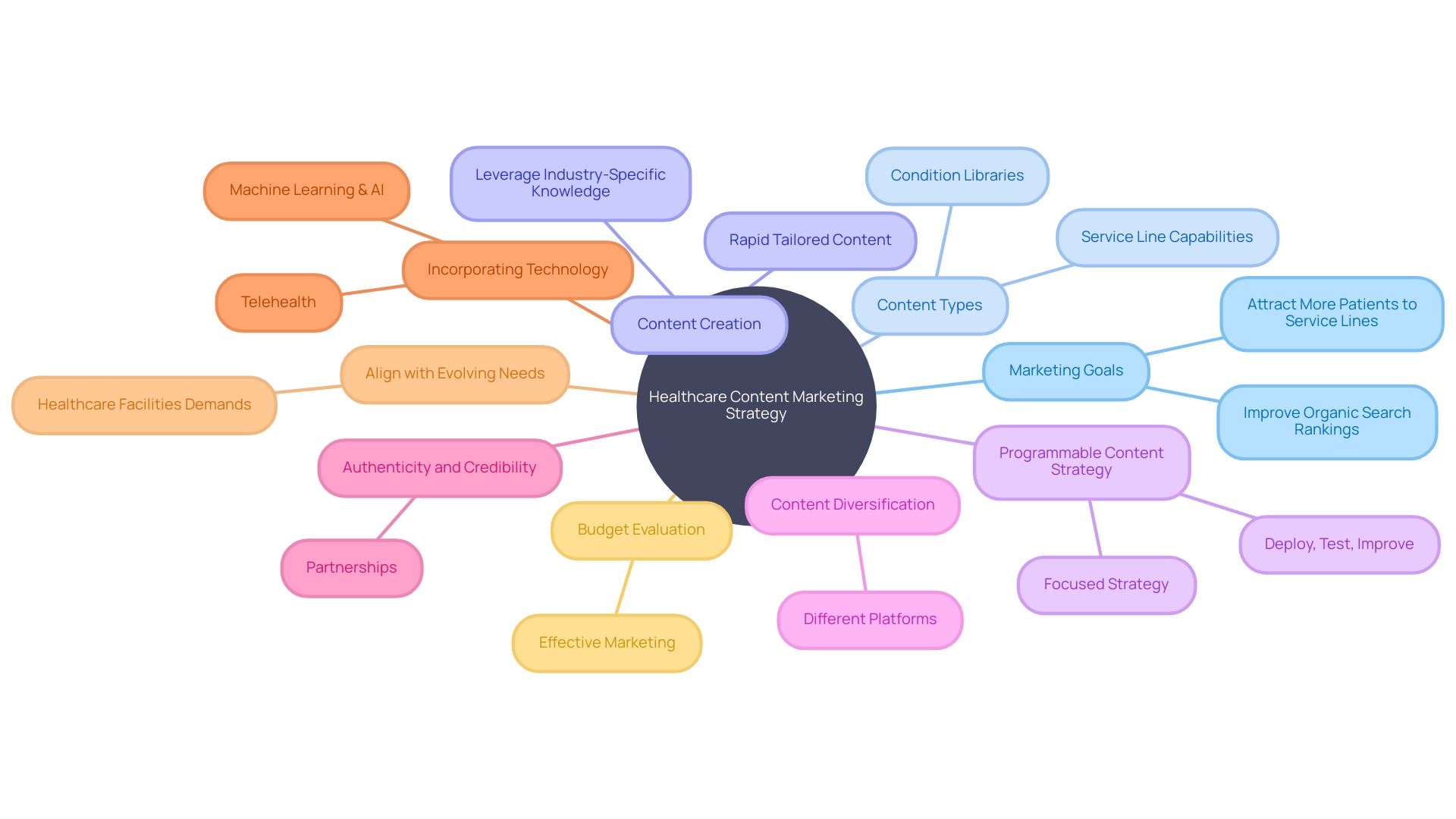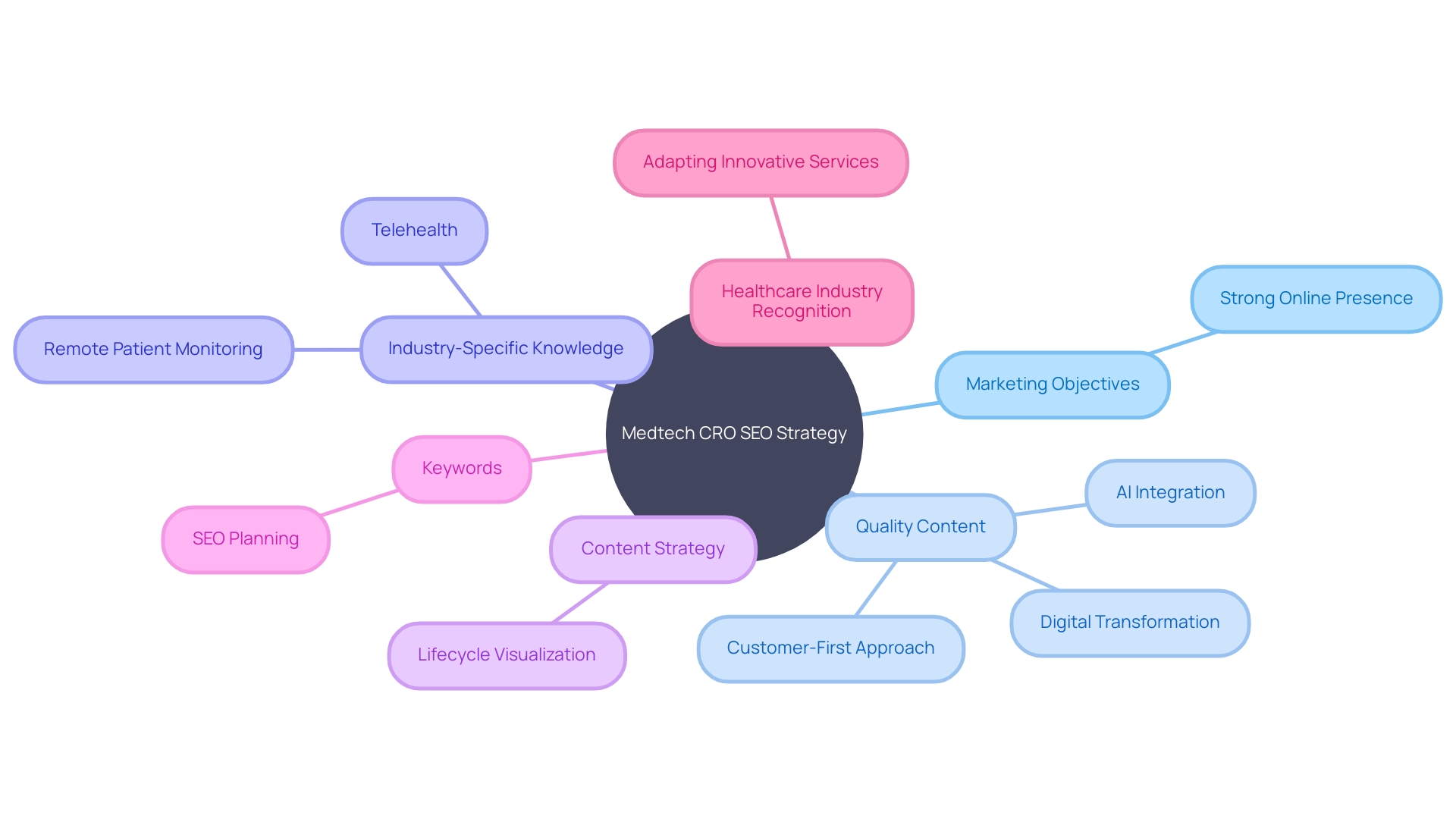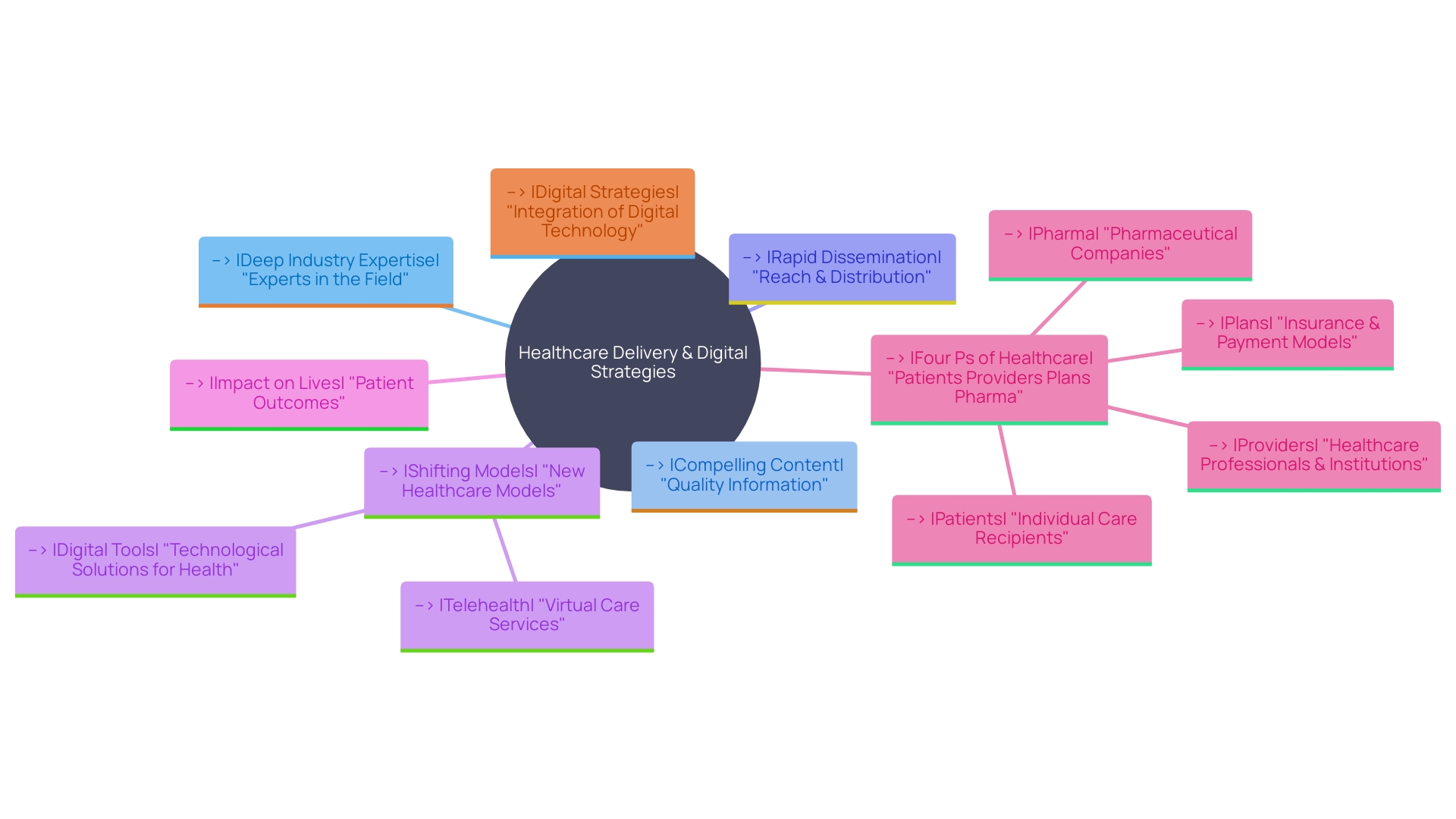Introduction
The Role of Medtech CROs in Healthcare Innovation
In an evolving healthcare landscape characterized by digital advancement and collaborative complexities, Medical Technology Contract Research Organizations (Medtech CROs) serve as a linchpin for progress. These organizations address the multi-layered needs of a sophisticated healthcare ecosystem, which includes patients, providers, payors, and producers.
Amidst the shifting alliances and the juxtaposition of traditional and digital interests, Medtech CROs provide indispensable support to medical technology firms. Through their prowess in study design, patient recruitment, and intricate data analysis, they ensure that new medical innovation not only meets stringent regulatory standards but also aligns with the imperative shift toward digital health strategies. From pacemakers to imaging instruments, Medtech CROs are integral in ushering in advancements that shape the core of medical practice and patient care.
The Role of Medtech CROs in Healthcare Innovation
In an evolving healthcare landscape characterized by digital advancement and collaborative complexities, Medical Technology Contract Research Organizations (Medtech CROss) serve as a linchpin for progress. These organizations address the multi-layered needs of a sophisticated healthcare ecosystem, which includes patients, providers, payors, and producers, each represented in a historical delivery model by the symbolic 'four Ps'.
Amidst the shifting alliances and the juxtaposition of traditional and digital interests, Medtech CROs provide indispensable support to medical technology firms. Through their prowess in study design, patient recruitment, and intricate data analysis, they ensure that new medical innovation not only meets stringent regulatory standards but also aligns with the imperative shift toward digital health strategies.
Dr. Thomas Fogarty, a luminary in the medical field, encapsulated the gravity of these entities' roles by remarking, "An idea, by itself, has no importance whatsoever; it is the implementation of that idea and its acceptance by others that brings benefit to our patients." Indeed, the acceleration of development and market introduction of new medical technologies by Medtech CROss offers genuine value across the healthcare spectrum, resonating with every stakeholder in the chain—from inception to delivery. Signifying their impact, statistics forecast the U.S. medical technology market to generate a staggering US$215.80 billion by 2024, a testament to the sector's brisk growth driven by innovation and the paramount need for sophisticated healthcare solutions. In this milieu, the role of Medtech CROss transcends mere service provision; they are architects of the future in healthcare, integral in ushering in advancements like pacemakers, imaging instruments, and medical devices that shape the very core of medical practice and patient care.
Challenges in Healthcare Content Marketing
Navigating the complexities of healthcare content marketing demands not only an understanding of medical nuances but also a keen sensitivity to the audience's needs. Content must be crafted in such a way that it is accessible to a diverse range of stakeholders, all the while upholding the utmost accuracy and authority to counter the deluge of health misinformation that is readily accessible online. Crafting content that resonates with healthcare professionals and the general public requires an agile approach to creation and constant evaluation to maintain relevancy and trustworthiness.
Consideration of the experience levels or credentials of the writers is pivotal, alongside a robust review system that ensures consistency across different mediums, be it text, images, or videos. By aligning content with strategic marketing goals, such as boosting organic search rankings or attracting patients through service line landing pages, healthcare organizations can leverage condition libraries and service line capabilities descriptions effectively. To optimize search engine visibility, an emphasis on relevance, expertise, and authority is critical; keywords must be well-aligned with the content, ensuring the material presented answers search queries comprehensively.
Telehealth's ascendance underscores the demand for content that accurately details new medical solutions and technologies. With an expansive reach that now extends into the daily lives of patients through teleconsultations and remote monitoring, the potential for growth in content marketing within this space is vast. Ultimately, establishing a trusted source of health information is a dynamic, ongoing process that requires meticulous attention to detail and an unwavering commitment to up-to-date, verified content.

Key Strategies for Effective Medtech Content Marketing
Navigating the dynamic landscape of healthcare content marketing requires a well-crafted strategy. Essential to this is producing high-quality content that resonates with the specific needs of healthcare professionals and patients alike.
This content includes but is not limited to, educational materials, thought leadership articles, in-depth case studies, and narratives of successful patient outcomes. In the pursuit of enhancing reach and engagement, it's beneficial to diversify through platforms such as blogging, video production, and an active presence on social media.
Authenticity and credibility can further be bolstered through partnerships with esteemed healthcare professionals and subject matter experts, whose testimonials and insights lend substantial weight to the message being conveyed. An exemplary case of effective content strategy is the story of Greater Los Angeles Orthopedics, who revolutionized their billing process after recognizing inefficiencies and harnessing the right technological solutions.
Such real-world accounts not only convey the practical application of services but also humanize the brand. The role of telehealth, especially highlighted during the pandemic, underscores the importance of content that educates about virtual healthcare services. With the influx of digital transformation, as highlighted by the impact of brands like Amazon, Netflix, and Meta, a customer-first approach is crucial for healthcare marketers. Incorporating Machine Learning and AI into content strategies offers an opportunity to meet the evolving expectations of pharmaceutical consumers. To truly captivate the market, presenting content that aligns closely with the ever-changing needs of healthcare facilities is vital, supported by meticulous budget evaluation to maximize marketing efficacy without compromising quality.

The Importance of Credible Sources in Healthcare Content
In the dynamic landscape of healthcare, where misinformation can be as prevalent as credible evidence, the necessity of sourcing information from authoritative entities is paramount. Content creators must vet their sources with meticulous care, drawing from esteemed medical journals, verified peer-reviewed studies, and recognized healthcare organizations to foster credibility and trust. As the online health ecosystem grows, it is imperative that providers of health information rigorously ensure the precision and relevance of their content through a well-defined creation, review, and update process.
With the guidance of qualified health education writers and the scrutiny of domain experts, each piece of content—be it text, images, or video—should align under a unified strategy that underscores adherence to current clinical practice. Furthermore, an effective search engine optimization (SEO) strategy should emphasize not just keyword relevance, but also the expertise and authority of the content, boosting its visibility and assistance to those in quest of factual health information. As public trust in varied sources of health information continues to evolve, the commitment to up-to-date, scrupulously reviewed health content becomes critical in combating the spread of unfounded health claims.
Using Clear Language in Healthcare Content
To ensure clarity and avoid misinformation, healthcare content must be presented in a manner that is readily accessible to both the medical community and laypersons. Public health language, which is often steeped in complex theoretical concepts and terminology, may unintentionally become a barrier to comprehension.
For example, specialized terms like 'herd immunity' or 'comorbidity' can be misinterpreted outside of their intended scientific contexts. During the COVID-19 pandemic, these terms quickly became part of everyday conversation, but without adequate explanation, there's a risk of such terminology being misunderstood or even causing offense, as seen with the word 'herd'.
It's not only about avoiding technical jargon but also about preventing the oversimplification that could lead to harmful stereotypes or misconceptions about health issues. As consumers turn to various sources for health information, the onus is on healthcare organizations to be reliable purveyors of facts.
Given that misinformed health decisions could have serious consequences—such as misunderstanding what constitutes a worrying 'sudden weight gain' for a person with heart failure—it's essential that the information provided is both precise and digestible. This requires a meticulous content creation and review process involving experienced health educators. Furthermore, the consistency of messaging across different media forms, including text, images, and videos, is key to reinforcing clear and accurate health communication. By aligning marketing goals with content strategies, healthcare providers can create targeted resources like condition libraries and service line descriptions to empower individuals with the knowledge to manage their health effectively.
The Power of Medical Video Content
Medical video content has become increasingly popular in healthcare marketing due to its ability to engage and educate audiences effectively. Videos can visually demonstrate medical procedures, explain complex concepts, and showcase the benefits of innovative medical technologies. Including video content in the marketing strategy of Medtech CROss can significantly enhance the reach and impact of their message, capturing the attention of both healthcare professionals and the public.

Investing in High-Quality Blog Posts
Medtech Clinical Research Organizations (CROs) leveraging blog content must approach their content marketing with a precise and insightful plan. An efficacious strategy starts by clarifying marketing objectives—whether it's enhancing organic search rankings or creating compelling service line landing pages to draw in more patients.
Focusing on creating informative condition libraries and service line capability descriptions can be particularly beneficial. These content types are not only resourceful for audiences but also assist in meeting key search engine optimization (SEO) criteria of relevance, expertise, and authority.
Effective keyword usage underpins SEO, enabling a CRO's content to achieve higher rankings by aligning closely with search intent. To resonate with a discerning market, such as hospitals and health systems that experience unique and fluctuating challenges, CROss must offer content that accurately reflects the concerns and needs of these entities. Implementing a programmable content strategy, marked by a staged and testable approach, can optimize content impact while ensuring marketing budget efficiency. By adapting to these strategic content initiatives, Medtech CROs can position themselves at the forefront of industry thought leadership, thereby fostering engagement and building lasting trust with their target audiences.

Making Information Accessible
Transforming healthcare delivery involves reimagining traditional models to serve the evolving needs of all stakeholders, which include patients, healthcare providers, insurers, and life sciences companies. Each 'P'—patients, providers, plans, and pharma—has played a pivotal role in shaping the healthcare environment, but the digital evolution is adding a new dimension. The advent of smartphones and consumer digital apps has ushered in unprecedented access to health information and services, leading to a healthcare model that is increasingly patient-centric.
Medtech Clinical Research Organizations (CROs) are well-positioned to drive this transformation further by integrating digital health strategies into their offerings. They can create platforms like DiabetesWise, conceptualized by Dr. Korey Hood, that tackle accessibility issues by providing educational resources online. This platform emerged from the necessity to improve the management of diabetes, particularly for those distant from urban centers with limited access to vital diabetes devices.
With a $4M grant from the Helmsley Charitable Trust, the platform operates independently of commercial biases, emphasizing equitable information dissemination. Through such initiatives, Medtech CROs can contribute to a more collaborative healthcare system that supports knowledge sharing and innovation, marking a departure from a time where stakeholders often stood in opposition. This shift represents a more fluid, cooperative approach to healthcare, breaking down barriers to information and empowering stakeholders to work together in enhancing patient outcomes.

SEO Strategies for Medtech Content Marketing
For Medtech CROss to maintain a robust online presence, they must deploy a multifaceted SEO strategy that begins with clearly defined marketing objectives. Whether it's elevating organic search rankings or crafting compelling service line landing pages to engage more patients, identifying goals is a critical first step.
The SEO battle is fought and won with high-quality, authoritative content that successfully answers search queries. To this end, incorporating industry-specific knowledge from subject matter experts into your content can lend an undeniable authority, convincing prospective clients of your expertise.
Moreover, an effectual content strategy, such as creating condition libraries or delineating service line capabilities, will respond to the ever-changing needs of healthcare stakeholders. A website’s relevance, expertise, and authority, buoyed by the strategic use of keywords, are cornerstones of a comprehensive SEO plan.
These keywords should not only align with the content but be carefully selected to rank favorably for pertinent search terms. Expanding on the advice of Dr. Thomas Fogarty on innovation, it’s clear that true recognition in the healthcare industry stems from an intricate understanding of its ecosystem's needs. This means that Medtech CROs must create relevant, expert-level content recognized by care providers, patients, regulators, and the industry at large, considerably empowering their journey from innovators to industry leaders. By mobilizing their wealth of knowledge into consumable and reliable content, Medtech CROss stand to enhance their digital footprint, attract meaningful engagement, and ultimately, support the progression of medical science.

Case Study: Overcoming Challenges in Medtech Content Marketing
In the dynamic healthcare market, particularly within medtech firms, the translation of deep industry expertise into compelling content is crucial. A Medtech Contract Research Organization (CRO) recently demonstrated this by turning the tacit knowledge of its experts into a series of market-facing materials.
Through insightful interviews with these subject matter experts, they were able to produce content that resonated with the need for rapid information dissemination on current, time-sensitive healthcare topics. In particular, they addressed the evolving landscape marked by the shifting healthcare delivery model, a critical understanding for targeting hospitals and health systems who face fluctuating challenges.
Their content strategy didn't just rely on conventional wisdom—it took into account the introduction of new digital health tools, like mobile health apps and telehealth services, which have emerged as significant players in the field. Understanding the prominence of telehealth, which has seen massive adoption for its ability to provide medical services virtually, the CRO embraced the topic in their marketing narratives.
Their content, thereby, reflected not just the mechanical aspects of medical devices but also the profound implications on patient lives through virtual healthcare delivery modes. One of their successful content themes highlighted the 'four Ps' of healthcare delivery—patients, providers, plans, and pharma—and introduced a new, transformative P: phones, alongside life sciences companies' incorporation of digital strategies. This angle effectively captured the audience’s attention by contextualizing medical tech within the larger fabric of everyday healthcare experiences. The CRO's adept use of content marketing strategy reflects the potential to enhance market engagement, addressing specific stakeholder needs, and capitalizing on budget efficiencies for peerless marketing impact.

Conclusion
In conclusion, Medtech CROs are crucial linchpins in healthcare innovation. They provide vital support to medical technology firms, ensuring new medical innovations meet regulatory standards and align with digital health strategies.
From study design to patient recruitment and data analysis, Medtech CROs play a pivotal role in shaping the core of medical practice and patient care. To navigate the complexities of healthcare content marketing, Medtech CROs must create accurate and accessible content that resonates with healthcare professionals and the public.
Clear language is essential in conveying health information effectively and avoiding misunderstandings. Credibility is paramount, and Medtech CROs should source information from reputable medical journals, peer-reviewed studies, and recognized healthcare organizations.
Incorporating video content can enhance engagement and education, visually showcasing medical procedures and innovative technologies. Investing in high-quality blog posts and implementing a well-crafted content marketing strategy positions Medtech CROs as thought leaders and builds trust with their audiences.
By integrating digital health strategies and promoting knowledge sharing, they contribute to a more collaborative healthcare system. A multifaceted SEO strategy is vital for maintaining a strong online presence. Creating high-quality content that aligns with the evolving needs of healthcare stakeholders and prioritizing relevance, expertise, and authority maximizes the impact of Medtech CROs' digital footprint. In summary, Medtech CROs drive healthcare innovation by providing crucial support to medical technology firms and ensuring regulatory compliance. Through accurate and accessible content, video marketing, high-quality blogging, and strategic integration of digital health strategies, Medtech CROs shape the future of medical practice and patient care.




